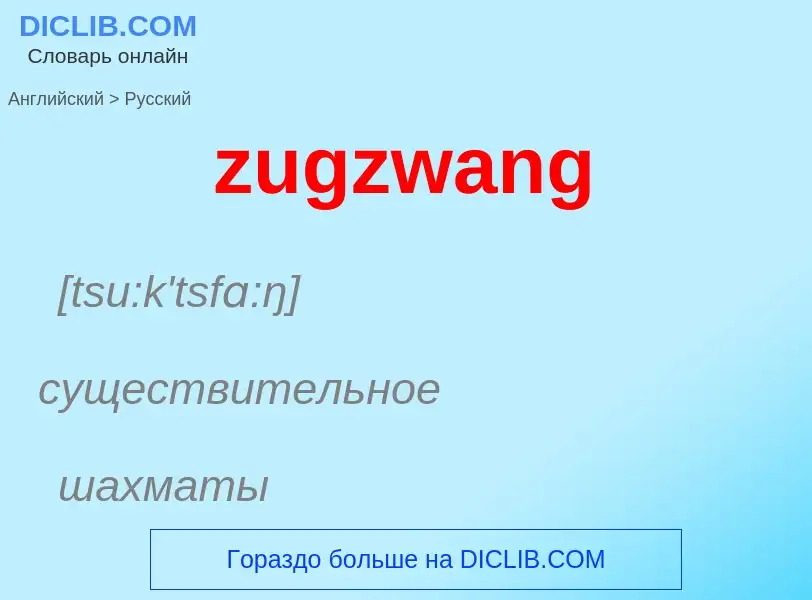Übersetzung und Analyse von Wörtern durch künstliche Intelligenz ChatGPT
Auf dieser Seite erhalten Sie eine detaillierte Analyse eines Wortes oder einer Phrase mithilfe der besten heute verfügbaren Technologie der künstlichen Intelligenz:
- wie das Wort verwendet wird
- Häufigkeit der Nutzung
- es wird häufiger in mündlicher oder schriftlicher Rede verwendet
- Wortübersetzungsoptionen
- Anwendungsbeispiele (mehrere Phrasen mit Übersetzung)
- Etymologie
zugzwang - Übersetzung nach russisch
[tsu:k'tsfɑ:ŋ]
существительное
шахматы
цугцванг
Definition
Wikipedia
Zugzwang (German for "compulsion to move", pronounced [ˈtsuːktsvaŋ]) is a situation found in chess and other turn-based games wherein one player is put at a disadvantage because of their obligation to make a move; a player is said to be "in zugzwang" when any legal move will worsen their position.
Although the term is used less precisely in games such as chess, it is used specifically in combinatorial game theory to denote a move that directly changes the outcome of the game from a win to a loss. Putting the opponent in zugzwang is a common way to help the superior side win a game, and in some cases it is necessary in order to make the win possible.
The term zugzwang was used in German chess literature in 1858 or earlier, and the first known use of the term in English was by World Champion Emanuel Lasker in 1905. The concept of zugzwang was known to chess players many centuries before the term was coined, appearing in an endgame study published in 1604 by Alessandro Salvio, one of the first writers on the game, and in shatranj studies dating back to the early 9th century, over 1000 years before the first known use of the term. International chess notation uses the symbol "⊙" to indicate a zugzwang position.
Positions with zugzwang occur fairly often in chess endgames, especially in king and pawn endgames. According to John Nunn, positions of reciprocal zugzwang are surprisingly important in the analysis of endgames.

